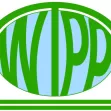Internet
County Land Management System Ditches Paper for Web
In one North Carolina county, the land development process -- from permitting to building plan submission to inspection -- is now organized under one electronic, online system.
Feds Going Online to Solicit Ideas and Feedback
The U.S. Federal Government has released a new online tool to help in the collection of feedback and ideas from the general public.
Broadband Stimulus Grant Requests Flood In
The application period has opened for federal stimulus grants to fund broadband Internet access projects in underserved areas. The response has been overwhelming.
The Challenges of City-Built Information Networks
When Lafayette, Louisiana set out to build a high-speed fiber optic data network, legal challenges caused major delays. Other cities are likely to experience the same issues as they try to expand their information infrastructure.
Geography Still Matters
Some commentators think that Internet technology will liberate us from the constraints of place; for example, one amazon.com book review of Joel Kotkin’s The New Geography states “Because today's connected workers can live anywhere they want, they will live anywhere they want.” Kotkin himself is a little more circumspect, but writes: “Telecommunication allows people who want privacy, low-density neighborhoods and good schools to live in small towns in a way never before possible.”(1) There is a tiny amount of truth to this claim: the Internet does make it
Why Broadband and Telecommuting Are Transportation Issues
Telecommuting should be considered an aspect of transportation, according to this piece from New Geography.
Should Cities Regulate Library Internet Use?
The city of San Jose decides against adding filters to public library computers to block websites with pornography.
Is Rural Internet Worth the Cost?
This piece from NPR looks at the debate over plans to use more than $7 billion from the stimulus plan to expand broadband Internet access in rural areas.
Mayor Takes Message To YouTube
The mayor of San Francisco delivers his annual state of the city message in ten 45-minute segments on YouTube rather than in person.
Should the Internet Replace Newspapers for Public Notices?
In thousands of planning and zoning laws across the nation, official announcements are required to be published in the local newspaper of "general circulation." In an era of newspaper decline and expanding diversity of media, are these laws becoming obsolete? Furthermore, should we be concerned with newspapers at all if a newer, more universally accessible medium is available: the Internet? A variety of announcements are legally required to be published in a local periodical of "general circulation," sometimes in addition to being published in an official government gazette. The practice entered the planning world through the U.S. Department of Commerce's highly influential standard zoning and planning enabling acts.
'Time Bank' Creates Community of Bartering
An online "time bank" has opened in Los Angeles, allowing members to barter services with each other.
Time for Government 2.0
With increasing amounts of data collected and held by governments, there's a lot of opportunity to make use of it for the betterment of communities, according to this column from Neal Peirce.
On the Verge of Replacement, 'Geographical Community' Survives
The rise in virtual connections and Internet-based communities had many worried that traditional community interaction was dying out. Governing's Alan Ehrenhalt argues it hasn't yet, and probably won't.
Municipal WiFi: Boon or Boondoggle?
Santa Monica, CA is succeeding where other larger cities have failed, creating a public WiFi system that actually makes money.
Let the Computer Do the Driving
Avoiding traffic congestion may soon be as easy as surfing the web, thanks to new web software that maps out congestion and calculates the best and most efficient driving routes.
Undressing the naked city
Often times I’m struck by the advances we’ve made in mapping, modeling and depicting our cities. What was once the purview of mapmakers, surveyors or architects is now a democratized, engaging process that brings unexpected results. And the more advanced the technology, the more transparent our cities seem to become.
City Building the American Way
After the dramatic collapse of the Minneapolis freeway bridge last week, the collective hand-wringing began. The bridge was known to be faulty, but had not been replaced. Our entire public transit system is underfunded, we were told.In addition to transportation infrastructure, those concerned with urban issues have a litany of complaints about American cities. Our transit systems are not adequately linked to zoning laws. Our high parking requirements doom alternative modes of transit and drive up development costs. Our policies encourage uncontrolled sprawl, which seemingly nobody likes. Planners' recommendations are too often overruled by ill-informed and politicized zoning boards. Our buildings aren't energy efficient. City mayors and councils play politics with projects painstakingly approved through highly democratic review processes. And nobody's happy when local activists hold undue power over individual projects. The solutions we are given are almost as varied as the problems. More centralized planning is often called for, or perhaps more regional planning. However, this seems highly difficult and unlikely in most places where land use is regulated by many small municipalities. Some suggest the solution is more public input on infrastructure and private projects to enhance their quality, while others think we need less input to speed them along and reduce the costs incurred by delays. Some are convinced elaborate flexible or form-based zoning holds the key to better cities, although implementation seems frustratingly difficult. Some cynics conclude that perhaps it is American cultural biases that produce our flawed cities: maybe Americans just like it this way, living with decaying infrastructure, long commutes, but low taxes. The motley list of solutions almost never includes the one thing that actually has overcome the myriad of obstacles to good city building before: a broad-based and robust conversation to create solutions, money, and political support.
Moving Pictures of Planning History: Education Online
Constantly updated, the internet has created an important tool for accessing up-to date information—text, still images, and video. Increasingly it also provides a window into aspects of history, including planning history, that have previously been difficult to find. Documents, indexes to archival materials, and the photographic and map collections of historical societies are accessible online. Less well known are film and video resources—resources that can be played online or downloaded. The Library of Congress, Motion Picture, Broadcasting and Recorded Sound Division now boasts an outstanding collection of hundreds of videos relevant to urban issues. Some examples illustrate the range:
Pagination
City of Costa Mesa
Licking County
Barrett Planning Group LLC
HUD's Office of Policy Development and Research
Mpact Transit + Community
HUD's Office of Policy Development and Research
Tufts University, Department of Urban and Environmental Policy & Planning
City of Universal City TX
ULI Northwest Arkansas
Urban Design for Planners 1: Software Tools
This six-course series explores essential urban design concepts using open source software and equips planners with the tools they need to participate fully in the urban design process.
Planning for Universal Design
Learn the tools for implementing Universal Design in planning regulations.
































